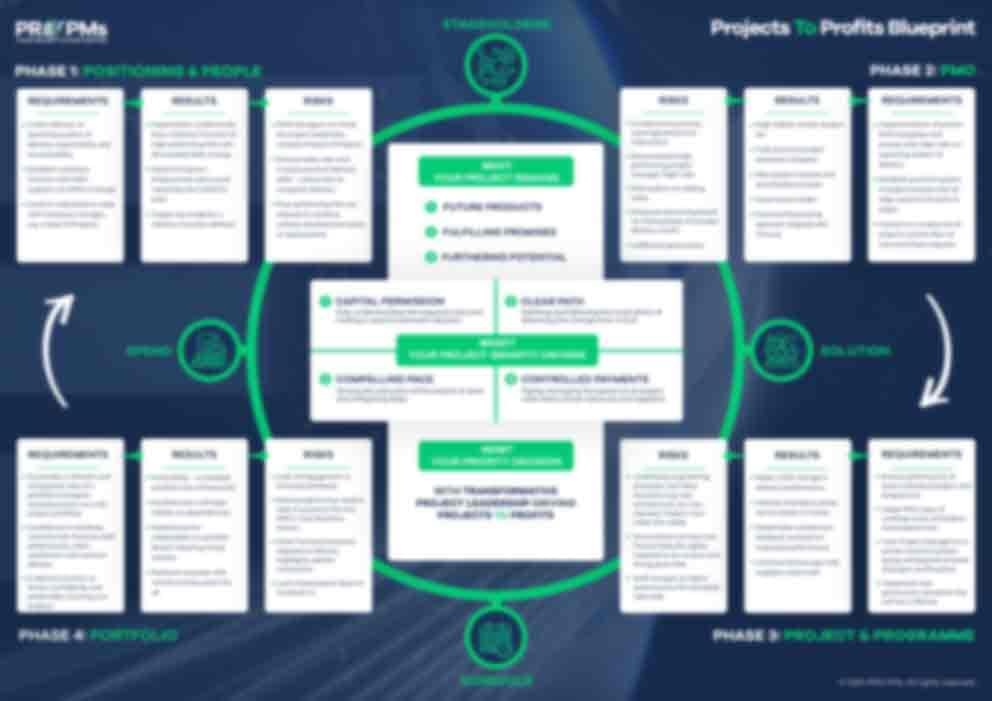When organizations suddenly find themselves scrambling to hire for critical capabilities they don’t possess, the immediate reaction is often to blame the talent market or recruitment processes. However, the reality is far more strategic: skills gaps aren’t hiring problems—they’re planning problems. This fundamental shift in perspective transforms how successful PMOs approach capability development and resource optimization.
The Strategic Nature of PMO Skills Planning
Traditional approaches to skills management treat capabilities as tactical resources to be acquired when needed. This reactive mindset creates constant firefighting scenarios where project management skills gaps emerge at the worst possible moments—right when critical initiatives are launching or reaching pivotal milestones.
Smart organizations recognize that PMO capability framework development requires the same strategic rigor as financial planning or technology roadmaps. When you discover you need capabilities you don’t have, it signals that your portfolio capability mapping wasn’t comprehensive enough to anticipate future requirements.
Consider a manufacturing company planning digital transformation initiatives across multiple business units. Rather than waiting until each project kicks off to identify skill requirements, a strategic PMO conducts thorough portfolio skills assessment during the planning phase, identifying needs for data analytics, change management, and digital project delivery capabilities months in advance.
Building a Comprehensive PMO Capability Framework
Effective strategic skills development PMO initiatives begin with mapping skill requirements across the entire portfolio. This involves analyzing not just current projects, but anticipated initiatives, emerging business priorities, and evolving market demands.
The process starts with creating a detailed PMO skills inventory that captures current capabilities, proficiency levels, and capacity constraints. This baseline assessment reveals gaps between existing skills and portfolio requirements, enabling proactive planning rather than reactive scrambling.
A robust PMO skills roadmap then connects current state capabilities with future requirements, identifying specific development paths for internal talent and strategic acquisition needs for external resources. This roadmap becomes the foundation for all training, recruitment, and contractor utilization decisions.
Transforming Training and Development Strategy
When skills are viewed as strategic assets rather than tactical resources, PMO training strategy evolves from ad-hoc professional development to systematic capability building. Organizations invest in developing skills ahead of demand, creating internal expertise before it becomes critically needed.
For example, a financial services firm anticipating increased regulatory compliance projects might begin developing internal audit and risk management capabilities six months before new regulations take effect. This proactive approach ensures project teams have necessary expertise from day one, rather than learning on the job or relying entirely on expensive external consultants.
Project capability development also extends beyond technical skills to include leadership, communication, and stakeholder management capabilities. The most successful PMOs recognize that complex portfolio delivery requires diverse skill sets working in harmony.
Strategic Resource Planning and Optimization
Effective PMO resource planning ahead transforms how organizations think about their talent pipeline. Instead of viewing recruitment as a reactive process triggered by immediate needs, strategic PMOs develop PMO talent pipeline planning that anticipates future requirements and builds relationships with potential candidates long before positions become available.
This approach also optimizes contractor and consultant usage. Rather than engaging external resources as emergency measures, strategic PMOs identify specific scenarios where external expertise adds maximum value—such as bringing specialized knowledge for unique initiatives or providing surge capacity during peak delivery periods.
Portfolio resource optimization becomes possible when you can predict capability needs across multiple time horizons. Resources can be allocated more efficiently, with internal talent developed for core competencies and external resources strategically deployed for specialized or temporary requirements.
Practical Implementation Steps
Implementing strategic workforce planning PMO practices requires systematic approach:
- Conduct quarterly capability assessments across all active and planned portfolio initiatives
- Map skill requirements against business strategy and emerging market trends
- Develop 12-18 month capability development roadmaps with clear milestones
- Create cross-functional development opportunities that build diverse skill sets
- Establish partnerships with training providers, universities, and consulting firms for specialized capabilities
- Implement skill-sharing programs across project teams to maximize knowledge transfer
Measuring Success and Continuous Improvement
The effectiveness of project management capability planning can be measured through several key indicators: reduced time-to-productivity for new team members, decreased reliance on emergency contractor hiring, improved project success rates, and enhanced team satisfaction scores.
Organizations that excel at capability planning report significant improvements in portfolio acceleration. When the right skills are available in the right place at the right time, projects launch faster, encounter fewer capability-related delays, and deliver better results.
Regular review and adjustment of capability plans ensures they remain aligned with evolving business needs and market conditions. The most successful PMOs treat their skills planning as a living document that adapts to changing circumstances while maintaining strategic focus.
By shifting from reactive hiring to proactive capability development, organizations transform their PMO from a tactical support function into a strategic enabler of business success. The result is portfolios that consistently accelerate because they always have the right capabilities ready when needed.



